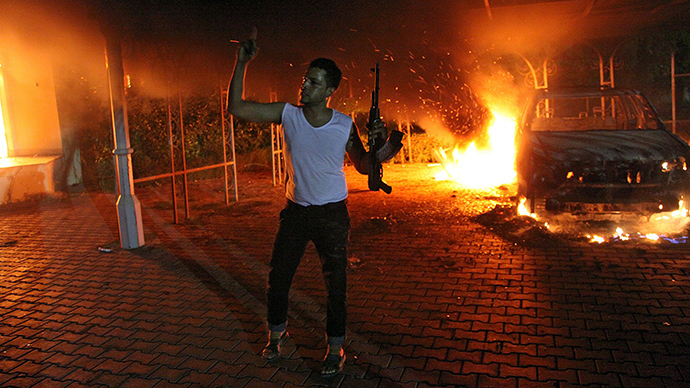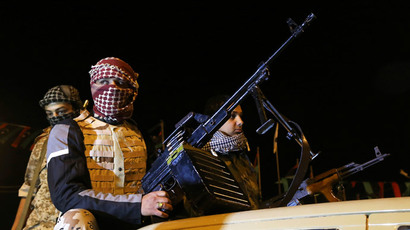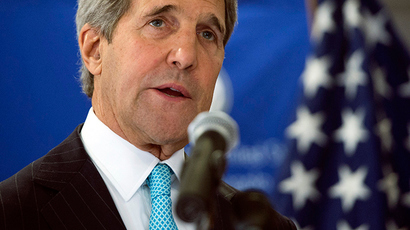Libya demands return of Benghazi suspect, slams US raid as attack on sovereignty

Following the capture of the suspected ringleader behind the 2012 attacks on the American consulate in Benghazi, the Libyan government has criticized the United States for the raid and demanded the return of the suspect.
In what marked the country’s first official comments on the American operation, Libya’s government said that any trial regarding the alleged crimes of Ahmed Abu Khattala, whose apprehension was announced on Tuesday, should take place in Libya and within its court system.
“The government stresses its right to try Abu Khattala on its territories and according to its laws,” the government said in a statement read on Libyan television, as quoted by the Associated Press.
Speaking to reporters at a news conference, Libyan Justice Minister Saleh al-Marghani denied that his government had received any consultation or notice from the United States before the raid was carried out. He also said the raid unexpectedly “upset our political scene,” and accused the US of violating the country’s soverengty.
"This attack on Libya sovereignty happened at a time when Benghazi is suffering from many problems," Marghani said, according to Reuters.
As noted by the news service, the Libyan government is currently “struggling with chronic lawlessness” as Tripoli finds itself incapable of effectively controlling the various groups that previously helped overthrow Muammar Gaddafi in 2011.
The remarks come just one day after Khattala’s arrest was first announced. As RT reported then, the raid took place over the weekend and was conducted by US Special Forces after coordinating with the Federal Bureau of Investigation. Khattala’s exact whereabouts are unknown, but unnamed officials told the AP that he’s being held somewhere in the Mediterranean Sea, onboard the USS New York.

Despite Libya’s protestations, it’s unlikely Khattala will be turned over. He’s currently on his way to the United States, where he’s expected to face trial in the American court system. That decision has come under criticism by some Republicans, like Sen. John McCain (R-Ariz.), who believe the suspected Benghazi leader should be sent to the Guantanamo Bay prison complex in Cuba.
Democrats and those in the Obama administration, meanwhile, have argued that civilian courts are just as capable of trying terrorists, who they consider to be criminals. Obama has also pledged to close Guantanamo, a promise made back in 2008, but has been unable to do so thus far.
“We have not added a single person to the GTMO (Guantanamo) population since President Obama took office, and we have had substantial success delivering swift justice to terrorists through our federal court system,” National Security Council spokeswoman Caitlin Hayden said to the AP.
Still, it’s unclear at this point whether or not Lhattala has been read his Miranda rights. Justice Department spokesman Marc Raimondi said only that, “As a general rule, the government will always seek to elicit all actionable intelligence and information we can from terrorist suspects in our custody.”
The attack on the consulate that left four Americans dead, the FBI is charging Khattala with “killing a person in the course of an attack on a federal facility involving use of a firearm,” trying and conspiring to provide material support to terrorists resulting in death, and using/possessing a firearm during a violent crime. If convicted, he could face the death penalty.
Although he’s been pegged as the ringleader behind the attacks by the US – as well as at least one witness interviewed by the AP – Khattala had previously denied being a part of the violence. He has acknowledged being present at the facility, but told the New York Times he arrived as the shooting started and was looking to “break up a traffic jam around the demonstration. After fleeing for a time, he said, he entered the compound at the end of the battle because he was asked to help try to rescue four Libyan guards working for the Americans who were trapped inside.”














